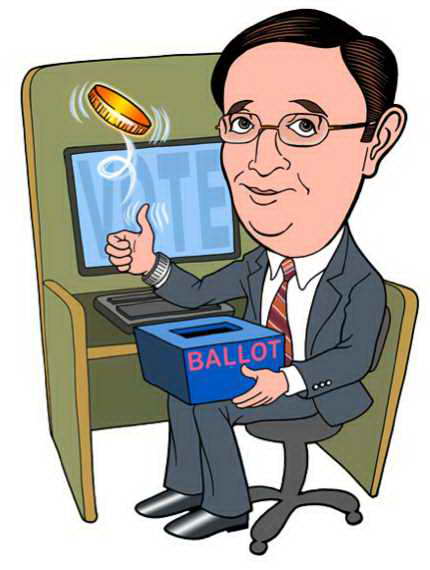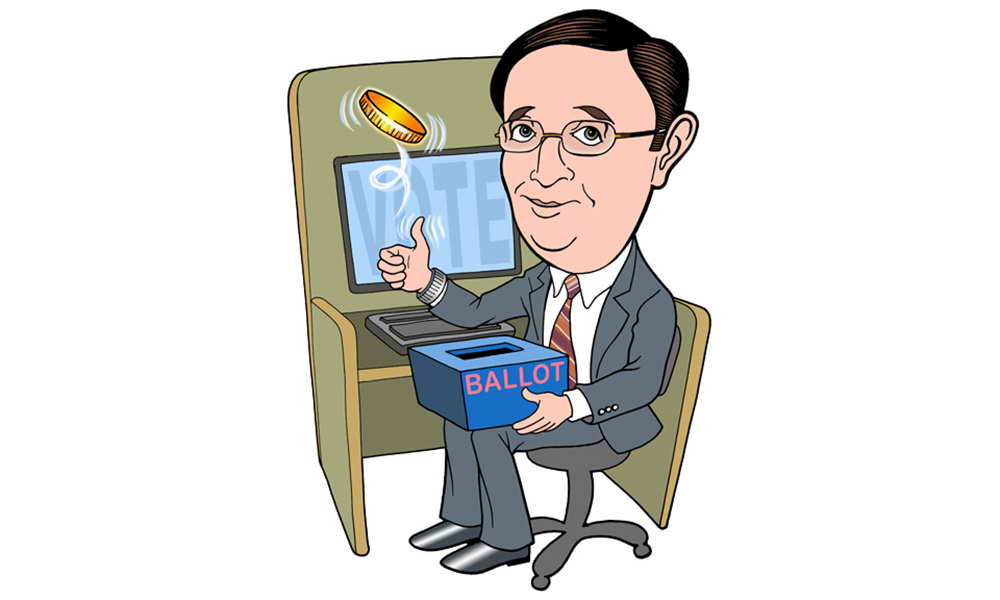By Dr. Lee M. Miringoff
If there is a silver lining for President Obama in Marist’s latest national poll numbers, it is that well into his second year as president– by more than 2 to 1– the electorate still thinks current economic conditions are mostly inherited from the Bush years and not the result of Obama’s policies. Admittedly, the current number of voters who blame prior failed Republican policies—62%— is substantially lower than the 76% who felt that way in the spring of 2009. But, it still represents a strong argument for the president as he shifts into campaign mode and tries to preserve his party’s margin in Congress.
 I suspect this view is reflected in the President’s internal polls and in what his advisers have been telling him. In his June 30th town hall meeting in Racine, Wisconsin, President Obama noted: “I just want everyone to remember—we’ve tried the other side’s theories…. We know where they led us… we can return to what we know did not work, or we can build a stronger future. We can go backwards or we can go forward.” Ditto for his Missouri campaign style swing where among other things he said, “It’s a choice between the policies that got us into this mess in the first place and the policies that are getting us out of this mess.” Not too subtle. Certainly, not a bi-partisan appeal.
I suspect this view is reflected in the President’s internal polls and in what his advisers have been telling him. In his June 30th town hall meeting in Racine, Wisconsin, President Obama noted: “I just want everyone to remember—we’ve tried the other side’s theories…. We know where they led us… we can return to what we know did not work, or we can build a stronger future. We can go backwards or we can go forward.” Ditto for his Missouri campaign style swing where among other things he said, “It’s a choice between the policies that got us into this mess in the first place and the policies that are getting us out of this mess.” Not too subtle. Certainly, not a bi-partisan appeal.
But, things are far from rosy for President Obama and drawing upon the past is mixed. The Marist Poll finds that the nation is largely divided on his handling of the economy as it is on his overall approval rating. More troublesome for the president, however, is that for the first time, the Marist numbers point to more voters who now think Obama has fallen short of their expectations than think he has met or exceeded them. In this instance, turning the clock back to 2008 does not pay dividends for the president.
With the eyes of the political community already fixed on the midterm elections, national polls are providing some preliminary data that turnout is unlikely to demographically reflect the 2008 electorate. According to Charlie Cook’s analysis of the latest NBC/Wall Street Journal poll, interest is greater among McCain 2008 voters than those who supported Obama. GOP’ers are hopeful that the election is a referendum on President Obama, and this translates into a wholesale turnover in Congress. Team Obama wants to make it a choice about who can best lead into the future and is claiming that progress on many fronts has been slowed by obstructionist Republican representatives. The battle lines are being drawn as sides try to rally their base and appeal to the all important Independent voter.
But, which side will be taking a victory lap in November? Although the White House has been caught off-guard in the past, they seem to be gearing up on schedule for the fall elections. The somewhat daunting political task facing President Obama is how to re-energize his 2008 winning coalition. He needs to mobilize young and minority voters who provided him his winning margin two years ago while finding a way to win back independent voters who have strayed. This may prove to be a tall order for the president.

